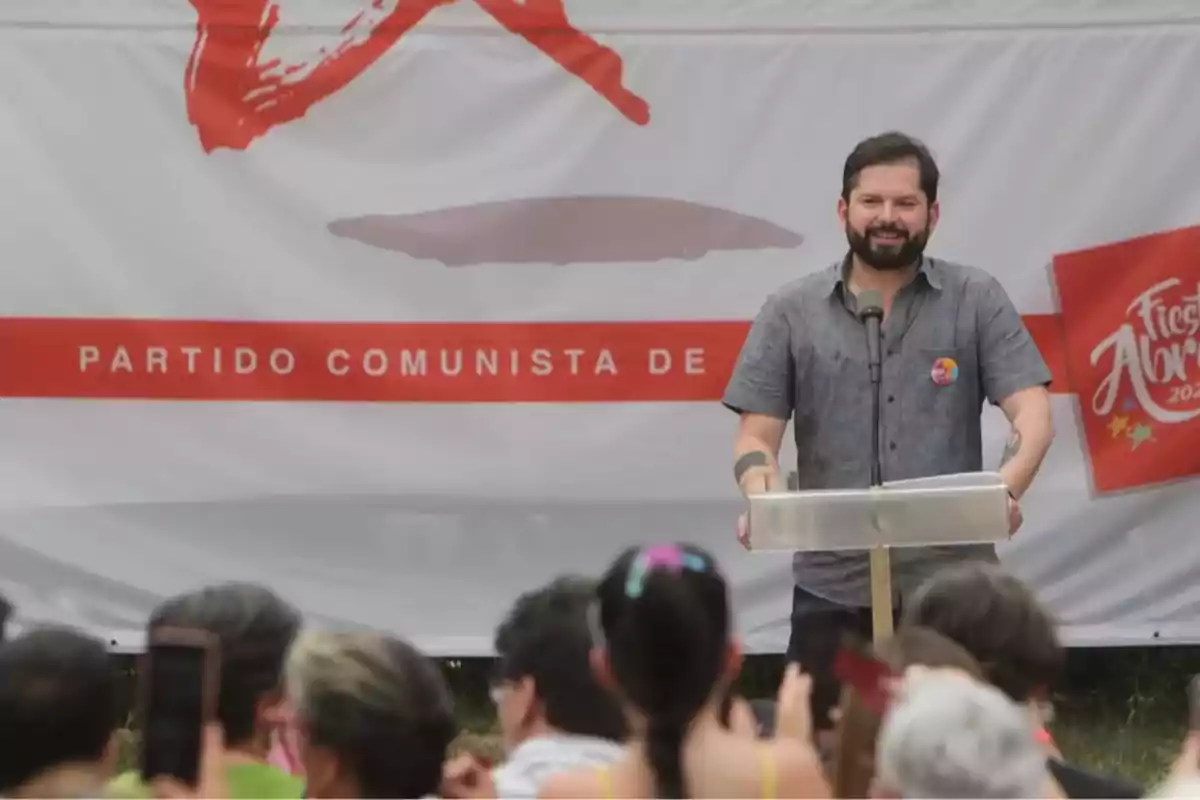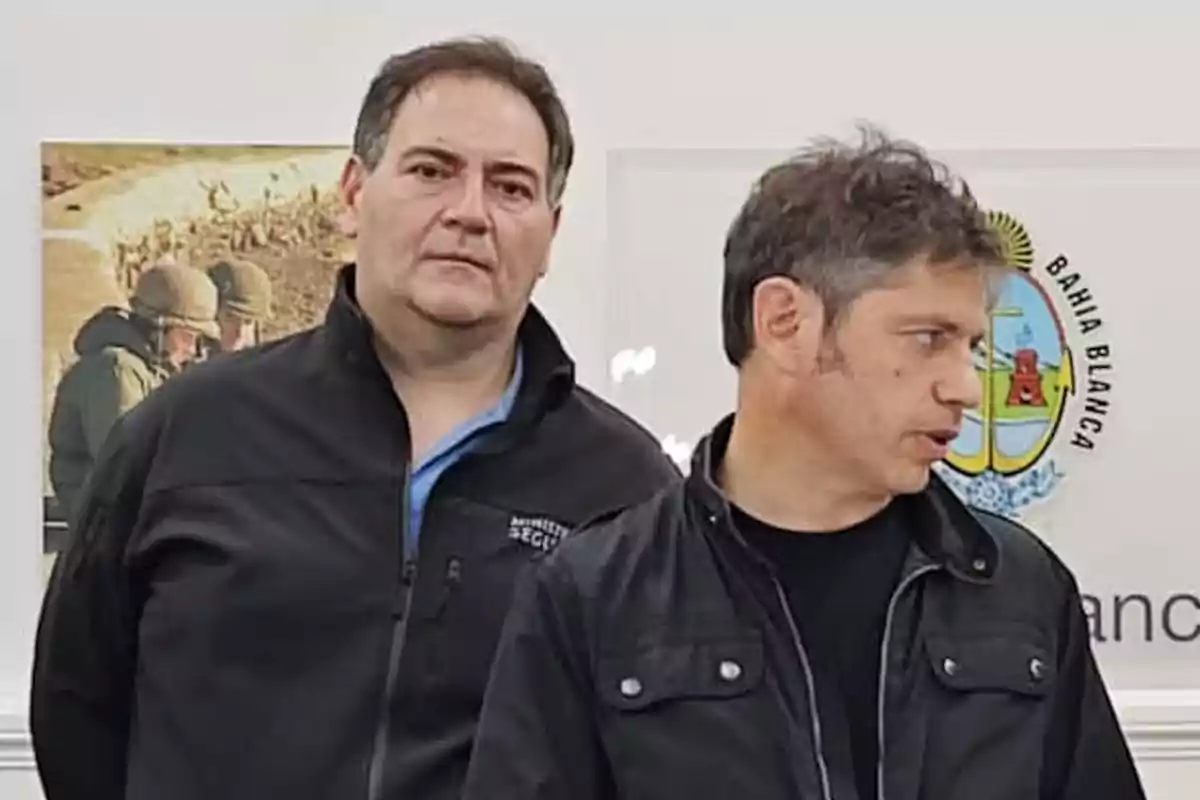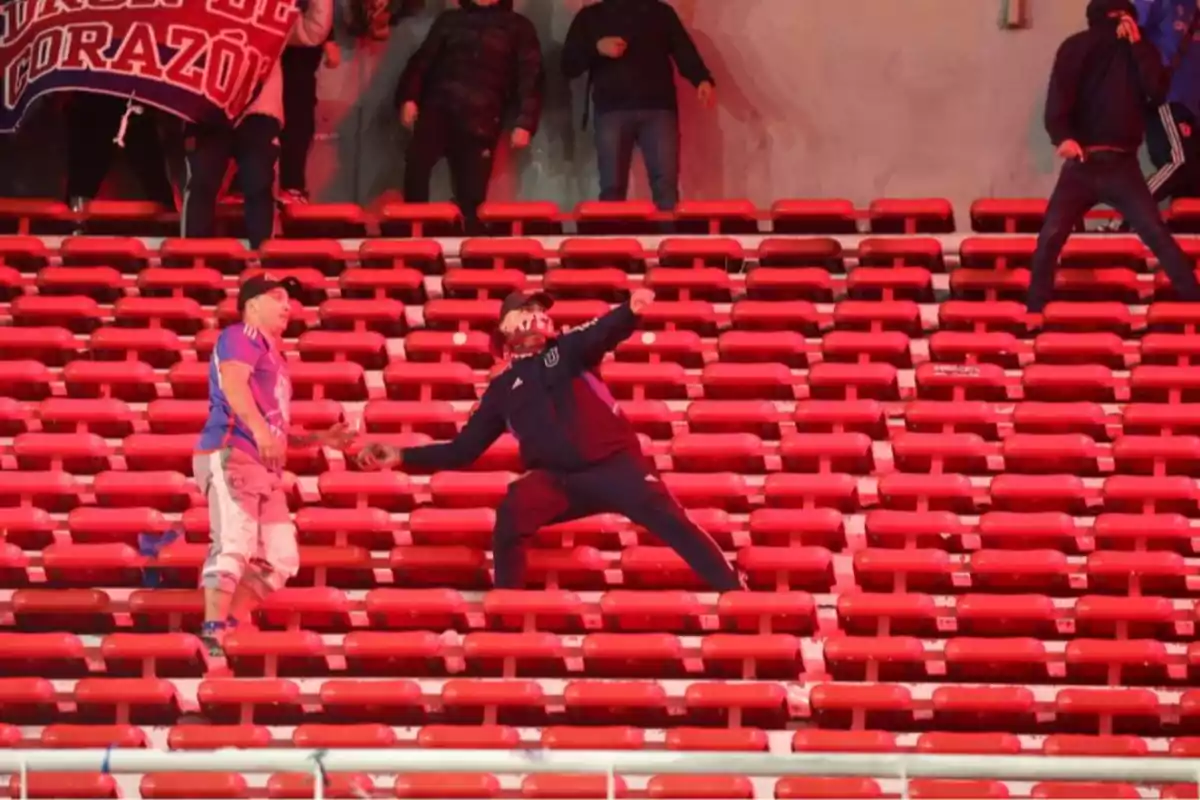
Boric spoke with Kicillof, who will prosecute the Argentine barras for attempted murder
The president of Chile aligned himself with the Buenos Aires governor amid criticism over the failed operation
The match between Independiente and Universidad de Chile in the round of 16 of the Copa Sudamericana was marked by a violent episode that lasted almost two hours and resulted in the suspension of the match. The incidents in Avellaneda not only exposed serious security failures, but also triggered a strong political clash in Argentina and diplomatic reactions in Chile.
The focus of criticism fell on Governor Axel Kicillof and his Security Minister, Javier Alonso, who were responsible for the operation that ended up showing a striking inaction despite the scale of the deployment. Although 650 police officers, 150 private agents, 69 traffic officers, 330 Utedyc employees, six advanced ambulances, and fifteen rescue teams had been assigned, the violence unfolded in plain sight without police intervention.
The official explanation was that the force "acts by evaluating the rational use of force, which means minimizing damage". However, the facts revealed that the lack of action allowed the situation to escalate.

In this context, Chilean President Gabriel Boricused his X account to communicate that he had spoken with Kicillof and expressed support for the actions of the Buenos Aires governor.
"I just spoke with the governor of the Province of Buenos Aires, who informed me that they have identified the individuals who brutally attacked Universidad de Chile fans at Independiente's stadium and that they will be charged with attempted homicide", he wrote. He added: "I appreciate the cooperation of the Argentine authorities in these terrible events, which as a society we can't normalize".
Boric's statement caused controversy because, instead of questioning the evident responsibility of the provincial government in the failure of the operation, he chose to highlight Kicillof's "cooperation". For various political analysts, the Chilean president's message was interpreted as explicit support for the governor, with whom he shares ideological affinity.
The reaction contrasts with the criticism from National Security Minister Patricia Bullrich, who harshly pointed to the provincial administration: "What happened yesterday at Independiente was a tragedy. The Government of the Province of Buenos Aires allowed violence to take over the stadium because they're afraid to have the Buenos Aires Police intervene to restore order".

The official statement from the National Security Ministry also held the Province of Buenos Aires responsible and described the operation as deficient, emphasizing that the Buenos Aires Police received the order "not to intervene before the start of the match". It also questioned the political decision to allow the return of visiting fans in a context lacking guarantees.
Instead of demanding explanations for the shortcomings reported by CONMEBOL itself in previous reports—which warned about the risk of placing visiting fans above the home supporters—, the Chilean president chose to support a governor identified as the main person responsible.
The scene not only exposes the fragility of the Buenos Aires security system, but also the political alignment between Boric and Kicillof, both leading figures of the regional left.
The Avellaneda tragedy makes it clear that, beyond diplomatic statements, the central problem was the deliberate inaction of the provincial force and the lack of political will. In this context, Boric's support for the Buenos Aires governor only deepens criticism of an operation that failed in its basic objective: ensuring the safety of the fans.
More posts: